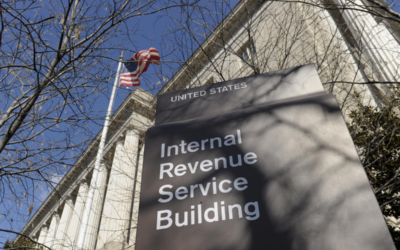IRS revenue officers are focused on tax collection. Unlike agents or examiners who handle tax audits, revenue officers are not accountants or CPAs and often lack advanced financial knowledge. A more accurate title would be “IRS collection agent.”
Challenges Taxpayers Commonly Face
Taxpayers often encounter several issues when interacting with revenue officers, including:
- Lack of Transparency: Officers may not disclose all available resolution options in an attempt to force you into paying as much as you possibly can right now without considering ongoing tax compliance or your financial well-being.
- Aggressive Tactics: Pressuring taxpayers into making immediate, large payments or taking drastic actions, such as mortgaging a home.
- Unreasonable Actions: Revenue officers may take steps, like filing liens, that could hinder a taxpayer’s ability to repay their debt, which can lead to professional license suspensions, which damages your ability to earn income.
Variability in Professional Conduct
While some revenue officers are cooperative and fair, others may display aggressive or unreasonable behavior. Problems arise particularly when the revenue officers’ managers enforce decisions that many revenue officers themselves may not fully agree with. This lack of personal discretion over your tax matter can lead to outcomes that feel unfair or overly harsh.
For example, some Revenue Officers may pressure taxpayers into large payments that are neither feasible nor in the taxpayer’s best interest.
The Importance of Legal Representation
Engaging directly with revenue officers can often lead to unnecessary stress and being forced into a payment arrangement you can’t afford. Hiring an experienced tax attorney who understands IRS procedures can make a significant difference. A skilled attorney can:
- Act as a buffer between the taxpayer and the revenue officer to make sure you are treated fairly throughout the collection process.
- Find a resolution that you can actually afford, such as negotiating an Installment Agreement or a settlement where you pay less than you owe under the Offer in Compromise program.
- Challenge unreasonable decisions that may harm your ability to provide for yourself and your family.
Case Example: A taxpayer on a payment plan planned to sell assets to repay their IRS debt.
Despite our warnings that a federal tax lien would lead to their tax professional’ license being suspended, the lien was filed anyway, causing major financial hardship and disruptions for our client. We fought to have the lien withdrawn.
Real-World Challenges with Revenue Officers
Taxpayers may face two forms of scenarios where the behavior of internal revenue officers escalates tensions or complicates internal revenue matters:
- Unfair Lien Filing: Revenue officers sometimes file liens despite knowing the adverse effects on the taxpayer, such as jeopardizing professional credentials.
- Managerial Pressure: Officers often cite their managers as the reason for enacting seemingly unfair actions, making it difficult to resolve disputes directly.
Escalating the matter to IRS Appeals or even US Tax Court may be necessary to achieve a fair resolution.
Key Strategies for Taxpayers
To navigate interactions with tax collectors and IRS revenue officers effectively, taxpayers should consider the following:
- Avoid Direct Interaction: Direct communication can lead to misunderstandings or added pressure.
- Seek Professional Representation: An experienced attorney or CPA can ensure all options are considered and manage disputes effectively.
- Document Everything: Keep thorough records of all communications, decisions, and agreements to support potential appeals or legal action.
Lessons Learned
Navigating the IRS’s collection tax resolution process is rarely straightforward. Taxpayers should prepare for these challenges by seeking professional guidance. With persistence and the right representation, most taxpayers successfully resolve disputes and achieve favorable outcomes.
Key Takeaway: By taking proactive steps to pay your past due taxes, taxpayers can protect their financial well-being and minimize stress.
Secure Your Financial Future with Professional Guidance
Ready to tackle your past due taxes? Let Sorrell Business and Tax Law help you find the best strategy to resolve your outstanding tax liabilities. Request a consultation today to get back on the path to financial stability.
Frequently Asked Questions (FAQs)
What is the role of a revenue officer or an IRS revenue officer?
IRS revenue officers focus on collecting unpaid taxes. Their primary role as tax collectors is to determine your ability to pay under IRS guidelines and secure owed taxes through various collection methods.
Can I negotiate my tax bill directly with an IRS revenue officer?
While it’s possible, you are likely better off hiring a tax attorney to handle these negotiations, so you can make sure you are treated fairly throughout the IRS collections process.
What should I do if an IRS revenue officer files a lien against me to collect taxes?
Consult a tax attorney immediately. They can help you resolve your delinquent taxes by negotiating a payment plan or settlement, file appeals if first-line negotiations fail, or challenge liens and levies if they are putting you in financial hardship where you are unable to pay your basic living expenses.
Are revenue officers allowed to arrest taxpayers?
No. If someone is threatening to arrest you unless you pay a certain amount, this is likely a scam. Revenue Officers won’t threaten to arrest you for unpaid taxes, though they may engage in aggressive collection actions such as filing liens against your property and levying your bank accounts.
How can I prepare for dealing with an IRS revenue officer?
Hire a tax attorney to handle all communications and negotiate on your behalf. If you already communicated with the IRS, be sure to document all interactions prior to meeting with your attorney and save all IRS correspondence so they can review it to get a better understanding of your situation.





